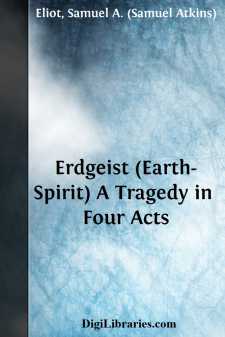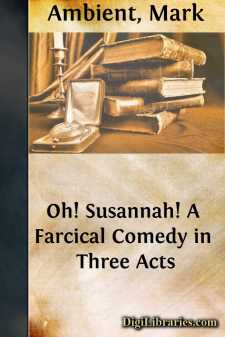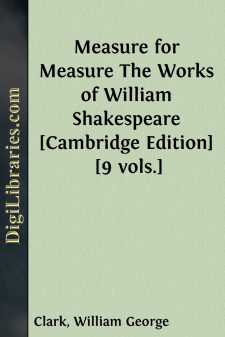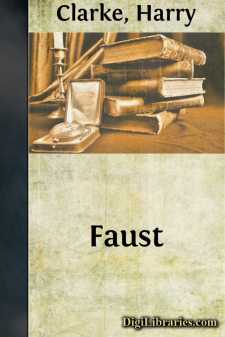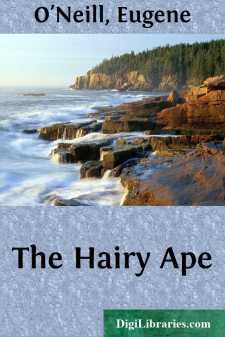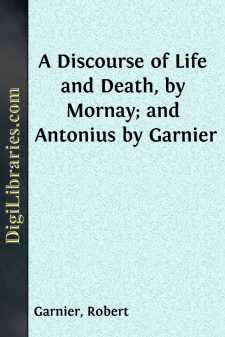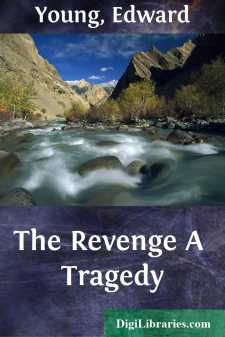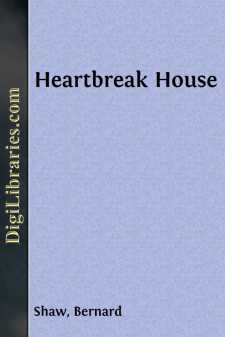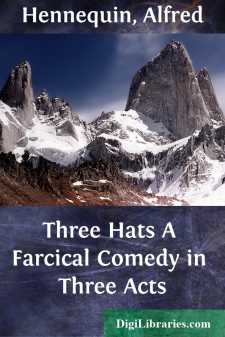Drama
General Books
Sort by:
At rise, is seen the entrance to a tent, out of which steps an animal-tamer, with long, black curls, dressed in a white cravat, a vermilion dress-coat, white trowsers and white top-boots. He carries in his left hand a dog-whip and in his right a loaded revolver, and enters to the sound of cymbals and kettle-drums.) Walk in! Walk in to the menagery,Proud gentlemen and ladies lively and merry!With avid...
more...
by:
Mark Ambient
ACT I. Scene. The Doctor's consulting room. Ground floor, 13 Marmalade Street, Pimlico. (See Scene Plot.) (Aurora. the slavey, discovered laying out Doctor's letters lovingly on his writing table; she kisses each one as she lays it down—all are in blue envelopes.) Aurora. They're all for 'im—the dear doctor. Won't 'e be pleased when 'e comes back and finds all...
more...
MEASURE FOR MEASURE. ACT I. I. 1 Scene I. An apartment in the Duke’s palace. Enter Duke, Escalus, . Duke. Escalus. Escal. My lord. Duke. Of government the properties to unfold, Would seem in me to affect speech and discourse; 5 Since I am to know that your own science Exceeds, in that, the lists of all advice My strength can give you: then no more . . . . . . . . . . . . . . . . . . . . as your worth...
more...
by:
Harry Clarke
I Erhabener Geist, im Geisterreich verloren! Wo immer Deine lichte Wohnung sey,Zum höh'ren Schaffen bist Du neugeboren,Und singest dort die voll're Litanei.Von jenem Streben das Du auserkoren,Vom reinsten Aether, drin Du athmest frei,O neige Dich zu gnädigem ErwiedernDes letzten Wiederhalls von Deinen Liedern! II Den alten Musen die bestäubten KronenNahmst Du, zu neuem Glanz, mit kühner...
more...
by:
Eugene O'Neill
SCENE I SCENE—The firemen's forecastle of a transatlantic liner an hour after sailing from New York for the voyage across. Tiers of narrow, steel bunks, three deep, on all sides. An entrance in rear. Benches on the floor before the bunks. The room is crowded with men, shouting, cursing, laughing, singing—a confused, inchoate uproar swelling into a sort of unity, a meaning—the bewildered,...
more...
by:
Robert Garnier
Sieur du Pleßis Marly. T seemes to mee strange, and a thing much to be marueiled, that the laborer to repose himselfe hasteneth as it were the course of the Sunne: that the Mariner rowes with all force to attayne the porte, and with a ioyfull crye salutes the descryed land: that the traueiler is neuer quiet nor content till he be at the ende of his voyage: and that wee in the meane while tied in this...
more...
by:
Edward Young
ACT THE FIRST. SCENE I.BATTLEMENTS, WITH A SEA PROSPECT. Enter Zanga. Zan.Whether first nature, or long want of peace,Has wrought my mind to this, I cannot tell;But horrors now are not displeasing to me:[thunder.I like this rocking of the battlements.Rage on, ye winds; burst, clouds; and, waters, roar!You bear a just resemblance of my fortune,And suit the gloomy habit of my soul.Enter...
more...
by:
Bernard Shaw
Where Heartbreak House Stands Heartbreak House is not merely the name of the play which follows this preface. It is cultured, leisured Europe before the war. When the play was begun not a shot had been fired; and only the professional diplomatists and the very few amateurs whose hobby is foreign policy even knew that the guns were loaded. A Russian playwright, Tchekov, had produced four fascinating...
more...
by:
Alfred Hennequin
CHARACTERS. , with a night adventure. , Selwyn’s unwilling slave. , of the Kilkenny Irregulars. , Professor of Penmanship. , a boy in buttons. , Sam’s Wife. , Sam’s Daughter. , secretly married to Fred. , a parlor maid. .—At first as described in the “Scene,” afterwards in ordinary dress. .—Walking costume. .—Exaggerated military style. .—Eccentric old gentleman’s costume. and...
more...
ACT I (SCENE.—A handsomely furnished, carpeted room, with a door at the back leading to a lobby. The FATHER is sitting on a couch on the left-hand side, in the foreground, reading a newspaper. Other papers are lying on a small table in front of him. AXEL is on another couch drawn up in a similar position on the right-hand side. A newspaper, which he is not reading, is lying on his knee. The MOTHER is...
more...


